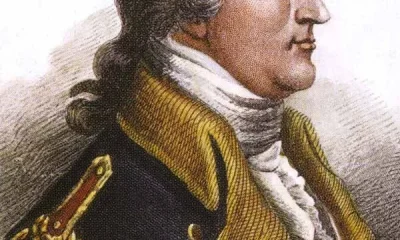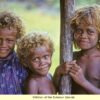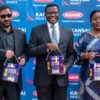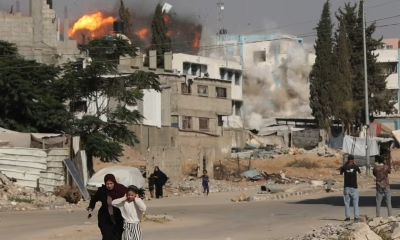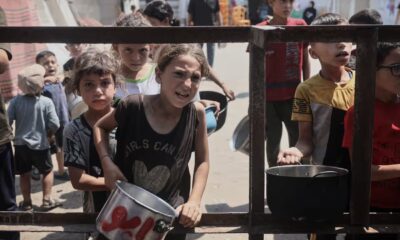Inspiration
Philly Lutaaya’s courage a source of inspiration to fight lockdown-obstacles to access AIDS treatment – US Official
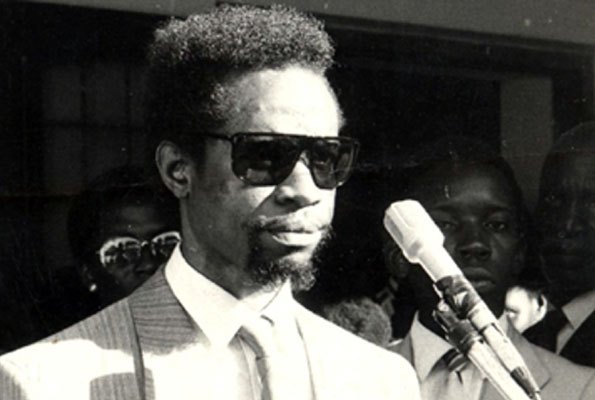
The Late Philly Bongole Lutaaya’s courage is needed now when the world is facing fear of yet a mysterious disease.
In an speech meant to inspire courage to overcome obstacles brought about by the ongoing movement restrictions brought about by the COVID-19 pandemic, the United States Embassy Chargé d’Affaires officer Christopher Krafft, has urged all Ugandans working in the war against the AIDS pandemic to not relent about the dangers of the disease.
Krafft also urged Ugandans to emulate the late singer Philly Bongoley Lutaaya’s determination and courage to end the Aids pandemic by ensuring that AIDS patients continue to take their medications, while also spread awareness messages about the disease.
Krafft’s made his remarks during the annual Philly Lutaaya’s Memorial Lecturer, one of the items on Uganda’s annual HIV/AIDS awareness activities that are usually held around December.
Remarks by U.S. Embassy Chargé d’Affaires Christopher Krafft
I am excited to be back for this, the second annual Philly Lutaaya Public Memorial Lecture, and so glad that the Uganda AIDS Commission was able to make this important event safely happen, despite the current COVID-19 pandemic.
A lot has transpired over the past year and much of it has had a critical impact on the important work on HIV that we all do. However, despite the challenges presented by COVID-19, this time has also provided opportunities for creativity and innovation reminiscent of the grassroots activism and advocacy pioneered by Philly Lutaaya himself during the early days of HIV and AIDS. That approach and the strategies that emerged from it worked then, and still work today.
Philly Lutaaya’s legacy of strength, bravery, and honesty couldn’t be more timely than it is right now. Before Philly Lutaaya died, he spoke about HIV candidly, powerfully, and fearlessly, breaking the barriers of stigma, discrimination, and fear. Through his music and his openness, he brought humanity to a disease that was relentless and shadowed in shame and provided opportunity to promote prevention while opening the doors for acceptance, disclosure, compassion, and support.
At the end of June 2020, our data shows that 84 percent of HIV positive individuals in Uganda are diagnosed, 84 percent of those people are on ART, and 62 percent of those people on ART are virally suppressed. This represents remarkable progress that demonstrates that many people living with HIV are able to access services, achieve viral suppression, and lead healthy lives—though we still have some way to go to achieve the 95-95-95 UNAIDS targets. Throughout this period of the COVID-19 pandemic, we have made progress in some areas and have suffered setbacks in others; we have regained some of the lost ground, though. As I will discuss, many community-based programs were paused or had to be redesigned.
More than 30 years into the HIV fight, stigma, discrimination, and non-disclosure remain key challenges, particularly for community drug distribution. However, during the COVID-19 pandemic these challenges have been heightened. The U.S. government through the President’s Emergency Plan for AIDS Relief, or PEPFAR, has responded to these challenges by expanding client-centered interventions through village health teams, expert clients, peer networks, mentor mothers, and others. By scaling up social network strategies among adolescents and young adults, the identification of HIV positive cases and their subsequent treatment initiation has increased.
In addition to the familiar grassroots tactics, we have also turned to technology to beat the challenges posed by COVID-19. The lockdown and travel restrictions instituted by the government created gaps in treatment coverage for children and adolescents as they struggled to find a way to get to their appointments. We pivoted by finding ways to utilize technological platforms to expand options for providing client-centered services closer to patients and communities. PEPFAR began utilizing WhatsApp appointment reminders, virtual site visits, virtual intensive adherence counselling, and the use of several social media platforms to ensure continued support to clients receiving treatment while tracking those lost to follow-up.
The suspension of public transportation resulted in limited access to facility-based services including HIV treatment and testing, viral load testing services, and early infant diagnosis services. Collectively, the HIV stakeholder community rallied together and deployed new methods to increase community-based ARV refills with integrated Viral Load (VL) testing, scaled up multiple month ARV refills so that patients could receive three or six- month refills, and introduced home-based Early Infant Diagnosis (EID) services. While many community-based prevention programs had to be paused, we supported innovative approaches to offer pre-exposure prophylaxis through community outreach as well as HIV prevention programs for adolescent girls and young women. We have also supported efforts to ensure the continuity of other vital health services, such as for tuberculosis, malaria, vaccination, and maternal and child health services.
With the end of the COVID-19 global pandemic still presumably some ways off, PEPFAR-supported implementing partners are actively tracking clients and will continue to need support from networks of People Living with HIV (PLHIV) and linkage facilitators to identify clients falling between the cracks and to develop innovative ways to reach them. Advocacy, activism, being a government watchdog, and acting as a community caretaker, activities Philly Lutaaya pioneered in Uganda, have been and remain critical to the HIV/AIDS response. Efforts such as these will continue to raise awareness of challenges in HIV prevention and treatment services and will help us in COP20 as we continue to develop and implement intensive catch-up strategies to mitigate the impact of COVID-19.
And as Uganda enters a stressful, tension-filled period in the run-up to national elections early next year, the need for such efforts will become even more important if ordinary people feel ostracized or unable to access services as a result of overreach by members of the security services in a misguided response to citizen activism and engagement by watchdog groups that embody the spirit of Philly’s legacy. I would call upon all of us here, and particularly those of you in government, to ensure that does not happen.
Although Philly did not live to see the availability of a successful HIV treatment, it was his voice that helped suppress the HIV stigma and increase compassion and awareness. The awareness he created shifted perceptions and established an environment for treatment to be quickly and widely implemented and utilized once available in Uganda. Uganda has made tremendous strides in the fight against HIV despite the roadblocks along the way. We are in the final stretch as Uganda approaches epidemic control and continues to strive toward the ultimate goal of ending AIDS as a public health threat by 2030. With this in mind, we must now, more than ever, employ the incredible legacy of Philly Lutaaya to fight roadblocks like continued stigma, COVID-19, and any others that may come our way. Philly didn’t let seemingly insurmountable roadblocks like these stifle his efforts, his voice, or his music. In the words of Philly Lutaaya, “Let’s take a stand and fight on to the end…with open hearts.”
Comments



